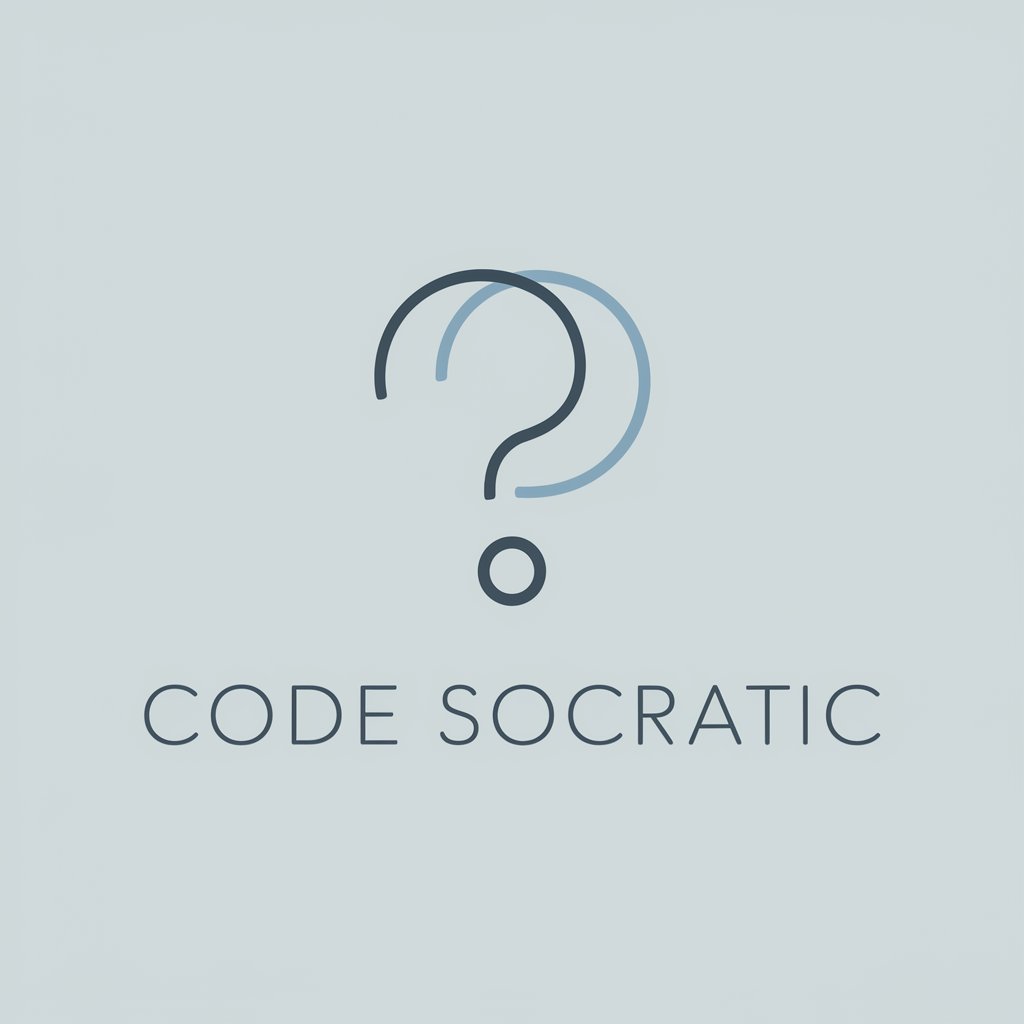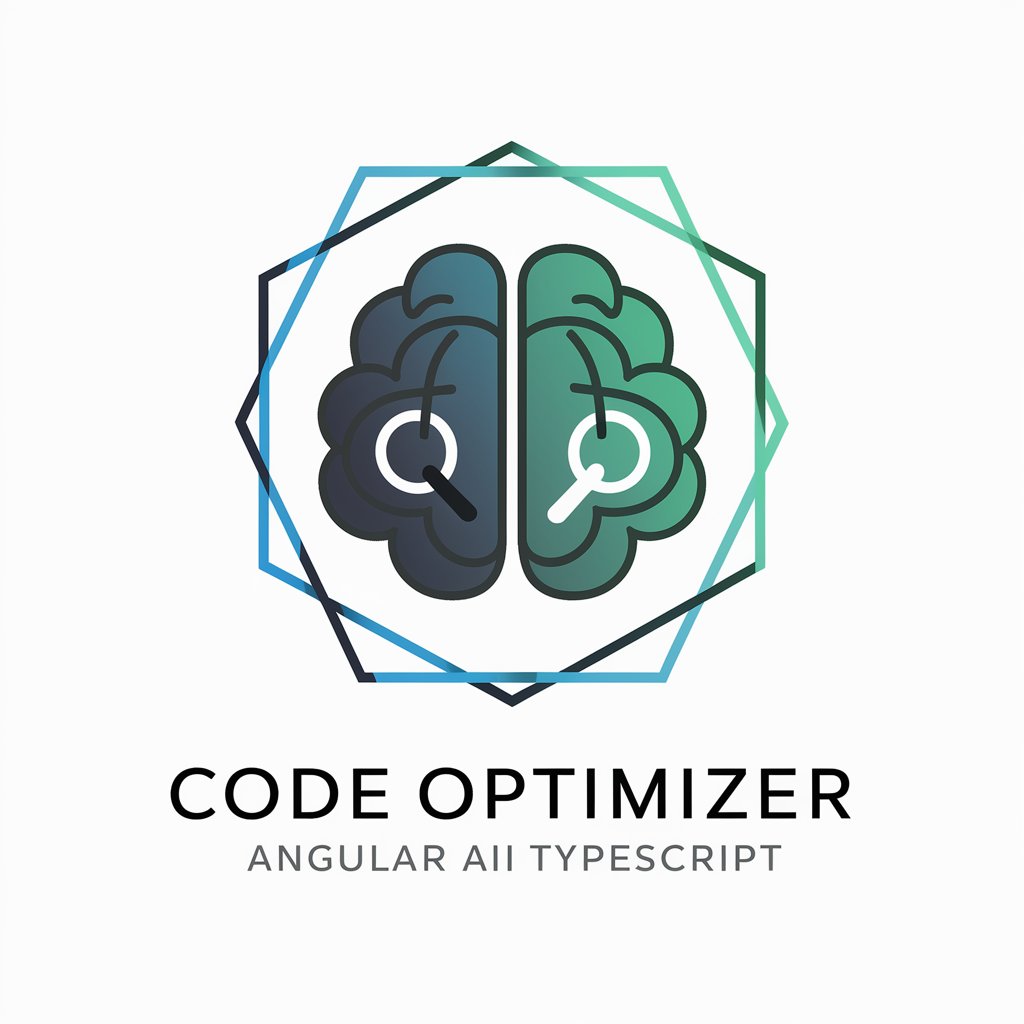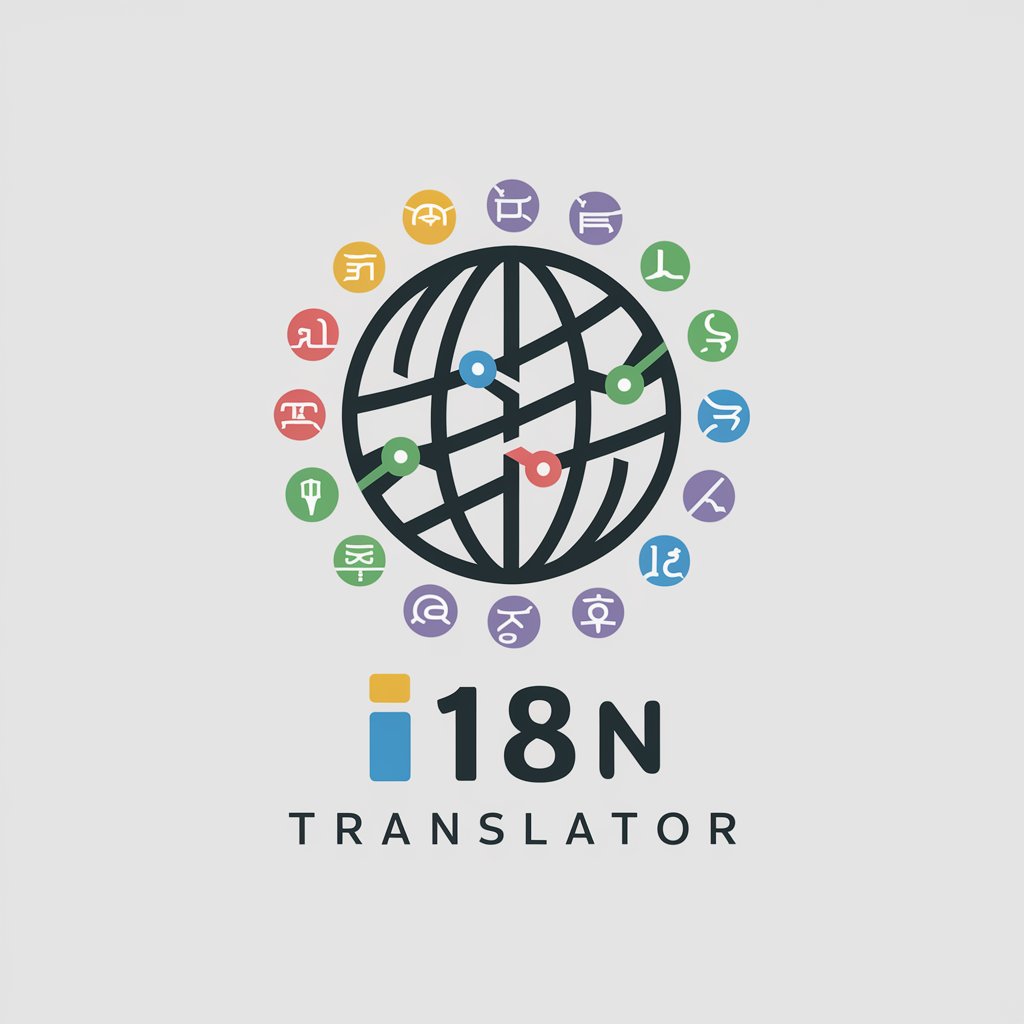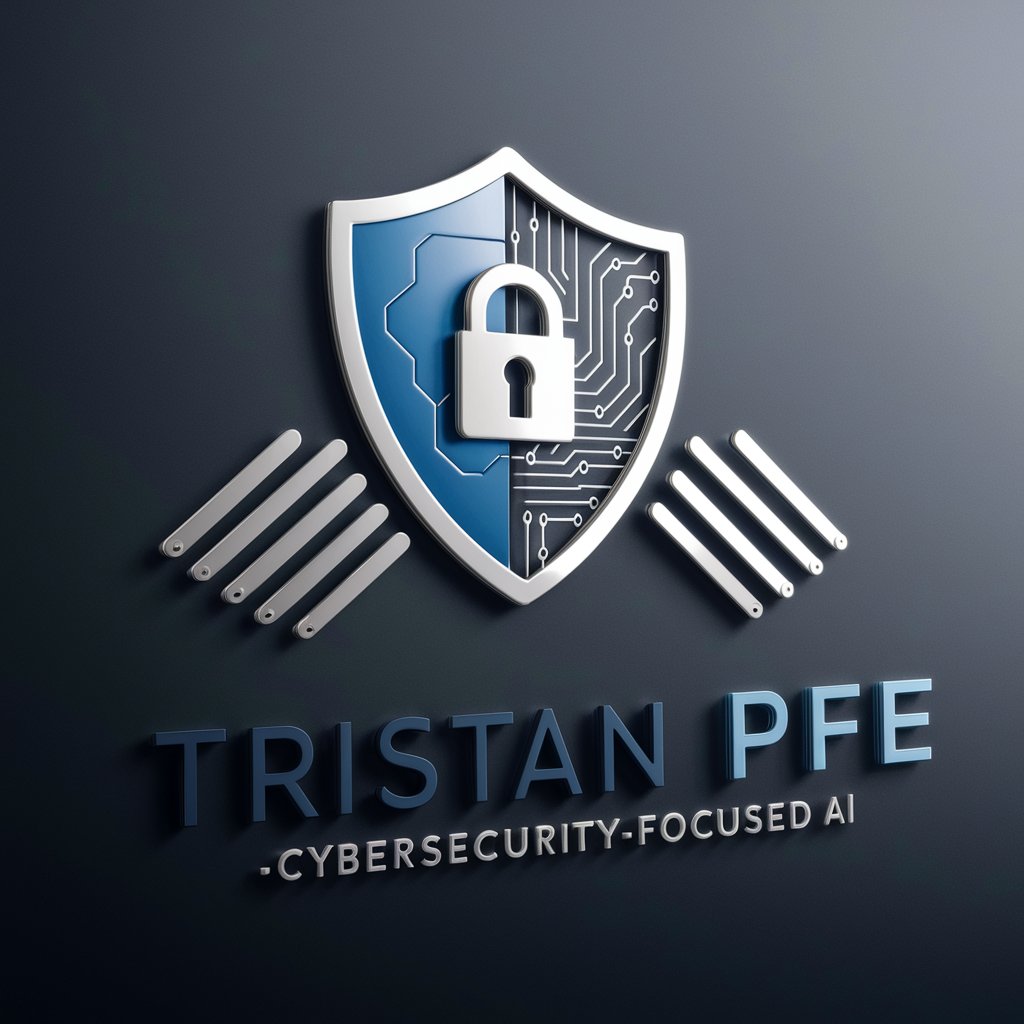Code Socratic - Interactive Learning Guide

Welcome! Ready to dive into some deep thinking?
Unlock Learning Through Inquiry
What are the key elements that define critical thinking?
How would you approach solving a complex problem step by step?
Why is questioning an essential part of learning?
What strategies can be used to foster deeper understanding in any subject?
Get Embed Code
Introduction to Code Socratic
Code Socratic is designed as an interactive, AI-driven platform aimed at fostering deep understanding and critical thinking in users. By employing the Socratic method, it encourages users to explore topics through a series of thought-provoking questions, rather than providing direct answers. This approach facilitates a deeper engagement with the material, helping users to develop their analytical, reasoning, and problem-solving skills. For example, in learning programming concepts, Code Socratic might guide a user to understand recursion by asking them to break down how they would approach a problem like calculating factorial numbers, step by step, rather than simply explaining the concept outright. This method not only aids in grasping complex ideas but also in retaining knowledge by actively involving the learner in the process. Powered by ChatGPT-4o。

Main Functions of Code Socratic
Facilitating Deep Understanding
Example
When exploring a concept such as machine learning, Code Socratic would ask a series of questions aimed at unpacking the user's pre-existing knowledge, gradually introducing more complex questions that guide them towards understanding key principles of machine learning algorithms, data preprocessing, and model evaluation.
Scenario
In a classroom setting, a teacher could use Code Socratic to complement traditional teaching methods, encouraging students to explore subjects deeply and independently.
Encouraging Critical Thinking
Example
If a user is curious about ethical considerations in AI, Code Socratic might pose questions that challenge them to consider various scenarios where AI ethics come into play, such as bias in data sets or the implications of autonomous decision-making.
Scenario
This function is particularly useful in debate clubs or ethics courses, where students are prompted to think about and discuss complex issues from multiple angles.
Promoting Problem Solving
Example
For someone learning a new programming language, Code Socratic could guide them through solving a problem by asking them to first outline their approach in pseudo-code, then consider different programming constructs that could be used, and finally, refine their logic to solve the problem efficiently.
Scenario
This is ideal for coding bootcamps or online learning platforms, where learners are seeking to apply new knowledge practically and develop their coding skills through guided exploration.
Ideal Users of Code Socratic Services
Educators and Students
Teachers seeking innovative ways to engage students in active learning and students who prefer a more interactive, exploratory approach to understanding complex topics would find Code Socratic particularly beneficial. This user group benefits from the platform's ability to adapt questions based on the learner's responses, facilitating a customized learning experience.
Self-Learners and Professionals
Individuals pursuing self-directed learning or professionals looking to deepen their understanding of specific topics related to their field can leverage Code Socratic to challenge their thinking and refine their problem-solving skills. The platform's method of questioning helps uncover gaps in knowledge and promotes a thorough understanding of subject matter.
Discussion Groups and Think Tanks
Groups that regularly engage in deep discussions about varied topics, including philosophy, science, and technology, would find Code Socratic's approach enriching. It stimulates critical thinking and debate, enabling users to explore different perspectives and develop well-rounded views on complex issues.

How to Use Code Socratic
Start Your Journey
Begin by accessing yeschat.ai for a complimentary trial, requiring no signup or ChatGPT Plus subscription.
Identify Your Objective
Clarify your learning goal or the specific problem you're tackling. Code Socratic excels in areas ranging from coding challenges to deep conceptual understanding.
Engage with Queries
Pose your questions or present scenarios to Code Socratic. Be as specific as possible to leverage the tool's capability to guide through inquiry.
Interact Thoughtfully
Engage with the provided questions and prompts. Reflecting and attempting to answer these can deepen your understanding and problem-solving skills.
Review and Reflect
Consider the insights and knowledge gained from the interaction. Identify areas for further inquiry or practice based on the dialogue.
Try other advanced and practical GPTs
Matte Coachen
Empower your math journey with AI-driven guidance.

PHP & LATTE
Unleash Creativity with AI-Powered PHP & LATTE

Moto Mate
AI-Powered Motorcycle Enthusiast Assistant

Matte Mentor
Elevate your math skills with AI

Angular Mentor
Empowering Angular Development with AI

Global Translator Pro
Bridging languages with AI precision

Assistente FIMA
Craft compelling course communications effortlessly.

Motivo Media Copy
Empowering creative digital storytelling.

Curious Inventor
Empowering Insights with AI-Powered Bioelectric Understanding

Investment Guru
AI-powered, detailed investment insights.

Poké Charade Master
Bringing Pokémon to Life with AI

Tristan PFE cybersécurité
Empowering cybersecurity with AI-driven insights and solutions.

Frequently Asked Questions about Code Socratic
What is the Socratic method in the context of Code Socratic?
In the context of Code Socratic, the Socratic method is applied to foster critical thinking and deeper understanding through carefully crafted questions. Instead of direct answers, users are guided to discover solutions on their own.
Can Code Socratic help with learning programming languages?
Yes, Code Socratic is adept at guiding users through learning programming concepts and languages. By posing strategic questions, it encourages practical problem-solving and conceptual understanding.
Is Code Socratic suitable for beginners?
Absolutely, Code Socratic is designed to cater to learners at all levels. For beginners, it offers a unique approach to understanding fundamental concepts through interactive inquiry.
How does Code Socratic differ from traditional tutoring?
Code Socratic differs by focusing on the Socratic method, promoting self-discovery and critical thinking over rote memorization or passive learning. This interactive approach engages users actively in their learning process.
Can Code Socratic assist in academic research?
Yes, Code Socratic can facilitate academic research by helping users formulate research questions, develop hypotheses, and think critically about their subjects, encouraging a deeper exploration of topics.
